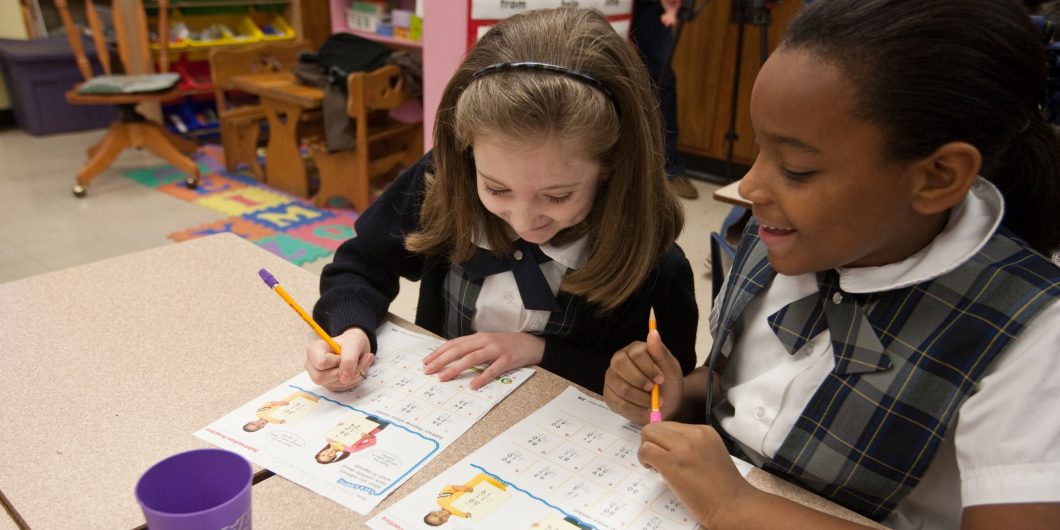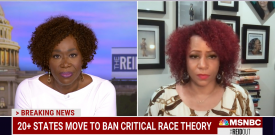Critical Race Theory has taken over our lives to such a degree that ordinary Americans are rising to say basta—enough!
Why School Choice Is the Best Choice
If the last year or so has not been particularly good for friends of ordered liberty, there is at least one conspicuous bright spot: the rapidly increasing momentum for school choice. Across the country, vouchers, Education Savings Accounts (ESAs), and various tax-credit programs have been dramatically expanded in terms of funding and eligibility requirements. While choice programs have traditionally been limited to children in low income brackets or in failing school districts, we’re starting to see a move toward broader systems that would cover the majority of students in a state.
Given that these changes have come amid school shutdowns, onerous Covid-mitigation strategies, and a public backlash against the pervasive use of critical race theory in public schools, it is reasonable to assume that many see school choice as a second-best option: ideally, we would have a well-functioning, non-ideological public school system, but in its absence, we might as well give low- and middle-income students the opportunity to escape. Even before the pandemic, most arguments for school choice usually started with how bad certain public schools are, and how competition could improve educational outcomes.
But there are good reasons to see school choice as a first-best option, not just a mitigating policy in the face of the pandemic, social-justice school districts, or failing schools. Even if conservatives could write our own public school policies, even if there were no achievement gaps, no political indoctrination, no Covid paranoia, we should still push for a system that makes parental choice an unexceptional part of every school system.
The ultimate goal (still, of course, a long way away), would be a system in which choice is so well-established, universal, and commonly used that it would, as Samuel Goldman recently put it, “change the norm” that the vast majority of students “attend the school to which they’re assigned by geographic district.” Instead, every parent would know from before their children were born that “what school?” is a real question that needs to be answered and can easily be answered in many ways.
School choice isn’t particularly controversial as a concept, with over 70% of parents expressing support for vouchers and ESAs, so it is not at all out of the realm of possibility that such an environment could emerge in several states in the coming years and decades. Aside from the oft-celebrated advantages of competition, such a system could have at least three less tangible, but potentially important cultural benefits that would make school choice the first-best option.
First, a school system built around choice could help build up a web of the kind of mediating institutions that are crumbling in the modern world. These are voluntary organizations and social groupings that operate within and apart from the state. Mediating institutions like churches, schools, and fraternal organizations constitute social bonds that help develop a sense of community and citizenship separate from the relationship between individual and state.
Being a part of an independent organization embeds an individual in a layer of community and fosters a kind of citizenship that is rooted in neighborliness and common endeavor rather than ideological commitments or our relationship to the state. Those who send their children to a certain school have consciously invested in a particular institution and have an interest in its success. In many schools, that choice will have been motivated by support for the school’s specific vision—a certain approach to moral formation, shared religious belief, or a commitment to a particular curriculum—making the school not just a collection of individuals, but a society of purpose. (I recently had a conversation with a parent whose kids attend a small private school, and I was struck that he always spoke of the school in the first-person plural. It’s not that “my child’s school is doing x,” but “we are doing x.”)
These sorts of institutions instinctively teach that social life, local association, and communal endeavors are not inherently tied to the coercive power of the state. A system in which all parents can choose public or private school would undoubtedly lead to a proliferation of new private schools, each one potentially a social undertaking. Realistically, of course, it would not transform society back into some Tocquevillian ideal, but at least thousands of parents who are so inclined would be freer to build up their own communities.
Second, and relatedly, a choice-based system could strengthen the idea that the education of children is essentially the job of the family. When the default setting of an educational system is that children will be assigned by the state to a district and zone based on location, it reinforces a belief that education is something that is provided from the outside by the great “tutelary power,” to use Tocqueville’s phrase. This doesn’t prevent parents from being heavily involved in the teaching of their children, but it does not encourage it either.
Conversely, a pervasive school choice system would not require particularly active parents, but it would encourage them. At the very least, it would instill a sense that parents have to think about and make a decision for their kids’ education. Parents selecting a private school will typically research different schools, go to open houses, examine the curriculum, and talk with other parents about the school before making a choice. If every parent is at least tasked with deciding “what school?” at the outset, many will feel obligated to make an informed choice, and it is more likely they will see education as their own province.
The more you engage education as a political and partisan question, the less you engage it for its own sake.
Finally, a settled and universal system of school choice could militate against the possibility that education remains a perpetual culture-war hot zone. It would not, of course, put an end to cultural differences in education—it allows for and embraces them. And education will always be in the crosshairs of politics, since it is one of the primary means by which values are transmitted. But an established system of choice would put serious impediments in the way of those who would use an education system as a means of social engineering. When 90% of students attend the same school system, all the eggs are in one basket, so to speak—control the curriculum there and you control education simply. But the more baskets there are, the less incentive there is to pour political resources into the increasingly difficult task of promoting ideological uniformity through classrooms.
Some, of course, would see a system of choice as a détente that gives up on the possibility of winning the war over education. Shouldn’t we focus our political resources on reforming the public schools to be a force for good—to win over the hearts and minds of the young? But the problem with culture war—especially in education—is not just the possibility of the wrong side winning. Rather, like an actual war, constant political conflict often transforms the “good guys”: It incentivizes or necessitates changing the way one thinks, speaks, and acts. The need to defeat enemies induces you to craft your message in the most politically appealing way. You develop your own ideas in part as a response to what political opponents say. You become more and more susceptible to simplifications and bumper-sticker slogans. You inevitably put yourselves at the disposal of those who say the right words but don’t really care about the message. In short, the more you engage education as a partisan question, the less you engage it for its own sake.
For instance, there are plenty of politicians who recognize a winning issue in the anti-CRT push (a perfectly worthwhile endeavor, I should stress), and are willing to fight the good fight in anticipation of reaping the political rewards. But should we trust these same politicians to implement a curriculum that actually points kids toward the good, true, and beautiful? That actually develops their intellects and imaginations? These are not exactly political winners, and there are plenty of alternatives to CRT that still wouldn’t do a thing to teach kids to engage thoughtfully with history (or, for that matter, literature, philosophy, or science). And even if an excellent curriculum were to be developed, could we be content, knowing that the next election cycle we will have to fight about it all over again?
The idea of a conservative renaissance of public education has the tinge of Tolkien’s Boromir: seize the apparatus of the enemy and use it to defend the West, not recognizing that an educational system tied up with our dysfunctional mass politics will inevitably be corrupting. Cultural rot can only be addressed through cultural renewal, which will not come through partisan political organizing. If it is to come at all, it will come slowly through local institution-building—by turning away from the distractions and passions that so often dominate electoral politics and toward permanent things.
Even a relatively healthy politics is inevitably a game of compromise and give-and-take. This is as it must be in a sharply divided society. But the education of children is one of those parts of life that is simply more important than partisan politics: It is something that should not be subject to the kind of compromises that politics necessarily entails. Removing (as much as possible) curriculum from electoral politics might allow us to spend more time thinking deeply about education itself instead of education as a platform plank. With partisan passions on the periphery, I would rather trust empowered pockets of civil society to redeem the time than a public curriculum crafted by my favorite politician.
Apocalyptic rhetoric seems to dominate conservative discourse lately, which means that good news tends to be downplayed. We’re still a long way off from every parent getting to decide “what school?” But the sweeping victories on school choice over the past year are hard to deny. If we press the advantage and don’t allow them to be written off as a pandemic-induced necessity, we might have a rare opportunity to make progress toward a better educational system, and also toward a healthier society.



